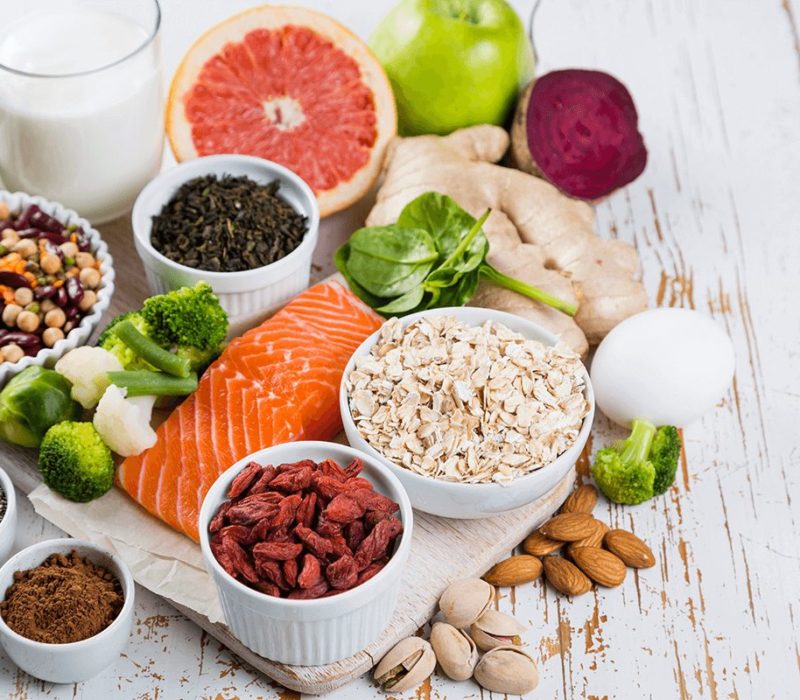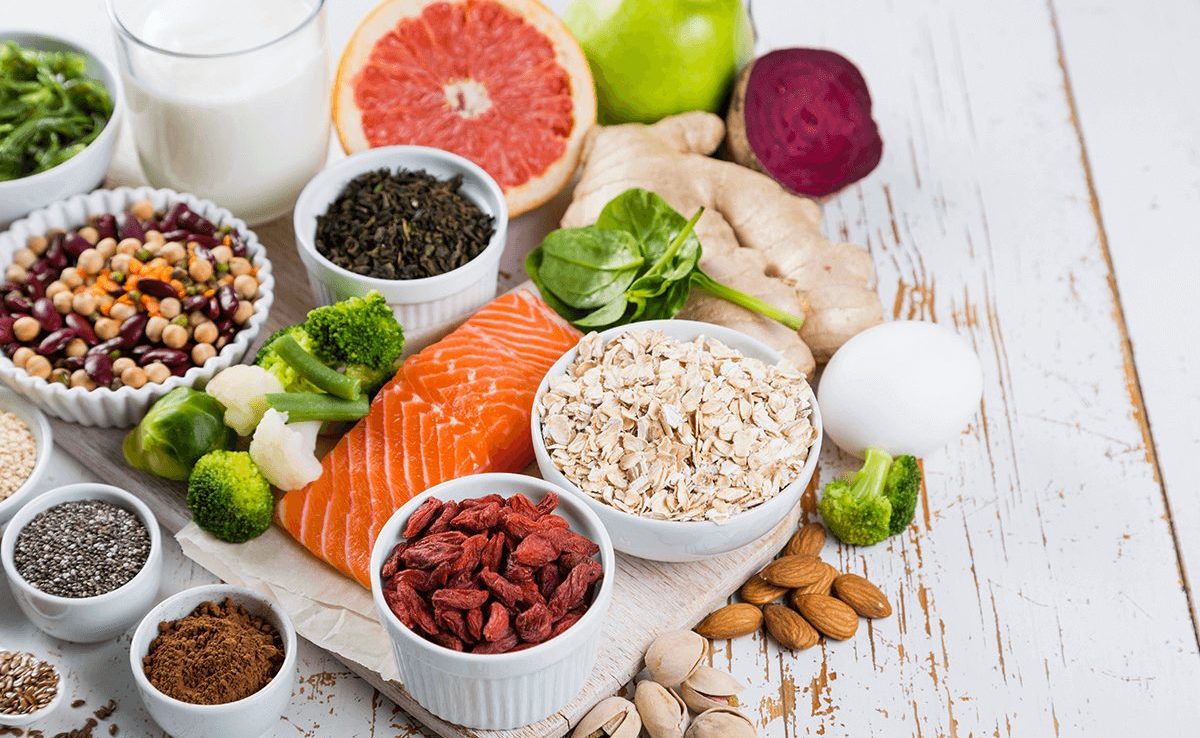Improve Your Immune System With Healthy Practices & Immune System Supplements
In the face of a global pandemic, what steps are you taking to improve your immune system? There are many ingredients and immune system supplements you can take to improve your defense against illness.
—
Facing a “new normal”
When the coronavirus (COVID-19) outbreak began, it felt like we were suddenly living in a new era that happened almost overnight. Many are calling it the “new normal” and it will likely influence how we consider our health going forward.
At the time of writing this article, there are over 2.6 million cases of COVID-19 around the world and over 180,000 people have died. The numbers are tragic, shocking, and although conditions are improving in some countries affected by the coronavirus, many others are not, and some places have yet to see the worst.
Until there’s a vaccine, which experts say could be as long as 12-18 months, it’s up to all of us to do our best to protect our health, that of our families, and to take protective measures to ensure we’re keeping our neighbors and communities safe.
How seriously do we take our health?
In this new era, will we be more conscious of our health and that of others? It might come as a surprise, but it didn’t take the coronavirus outbreak to raise our collective consciousness as far as health is concerned.
Data from the Council of Responsible Nutrition (CRN) show that people are looking to dietary supplements to achieve their health goals. In 2019, 77% of adults in the US take dietary supplements and over 170 million Americans take dietary supplements every year, up from 68% in 2015.
A 2019 survey from Information Resource Inc. (IRi) shows that well before COVID-19 began impacting the world, 45% of people were already increasing purchases of nutritional supplements for immunity. Spending on immunity products is up 188% from the previous year.
All of this is great news. The data not only shows that people take their health seriously and prove it by taking active steps to optimize their immune system strength with nutritional supplements and other dietary supplements, but it doesn’t take the overwhelming nature of a pandemic to force people into action.
How can I boost my immune system now?
There are a lot of great habits you can take on now to help improve your immune system strength, but according to an article in Harvard Health it isn’t necessarily easy to do. There are a lot of components to your immune system and “to function well, it requires harmony and balance.”
Developing a practical approach to improving immune system strength should be multifaceted, including various disciplines and immune system boosters and supplements that can help different parts of the body.
Know that the older you get the more determined you must be to maintain your immune system as immune response capabilities diminish with age, making the body more susceptible to viruses and diseases like coronavirus and cancer.
It’s not all about what you should ingest and not ingest that gives your immune system a boost, but a range of choices you can make, including:
- Not smoking
- Staying well hydrated
- Drinking alcohol in moderation (if you drink at all)
- Eating a diet rich in various fruits and vegetables
- Exercising and maintaining a healthy weight
- Adopting healthy practices to help minimize stress
- Making sure you get adequate sleep
What else can I do to improve my immune system?
According to a study on micronutrient inadequacies at Oregon State, the vast majority of the US population does not reach the recommended daily amount of multiple micronutrients:
“Specifically, 94.3% of the US population do not meet the daily requirement for vitamin D, 88.5% for vitamin E, 52.2% for magnesium, 44.1% for calcium, 43.0% for vitamin A, and 38.9% for vitamin C. For the nutrients in which a requirement has not been set, 100% of the population had intakes lower than the AI [Adequate Intake] for potassium, 91.7% for choline, and 66.9% for vitamin K. The prevalence of inadequacies was low for all of the B vitamins and several minerals, including copper, iron, phosphorus, selenium, sodium, and zinc. Moreover, more than 97% of the population had excessive intakes of sodium, defined as daily intakes greater than the age-specific UL [Tolerable Upper Intake Level] (26).”
Part of a healthy immune system is maintaining a healthy diet and lifestyle and there are many immune support supplements you can take today that are available online and over the counter at your local pharmacy. Be sure to always consult your doctor before adding supplements to your diet, especially if you take prescription medicines or other over the counter drugs.
Vitamin A
Found in many colorful foods, like carrots, cantaloupe, and sweet potatoes, vitamin A is rich in antioxidants that can help give your immune system a boost.
Vitamin B6
Mainly benefiting the central nervous system, vitamin B6 is involved in producing serotonin and norepinephrine, and in forming myelin. It also helps protein and glucose metabolism and helps manufacture hemoglobin, and helps keep lymph nodes, spleen and thymus healthy — all important components of healthy immune system functioning.
Vitamin C
Vitamin C is found in a lot of different citrus fruits and vegetables and it’s essential for good health and a well-functioning immune system. Since the body doesn’t produce vitamin C on it’s own, it’s important to maintain a diet rich in vitamin C, or take a supplement every day to ensure your body always has access.
Vitamin D
Vitamin D2 derives from foods and vitamin D3 comes from the sun and animal products. Vitamin D deficiency is quite common in the US, and it’s possible that the deficiency is because many people have a hard time absorbing vitamin D in food.
Vitamin E
Vitamin E is found in various nuts, seeds, spinach, and broccoli. And like vitamin C, it’s a powerful antioxidant that plays a critical role in how your immune system functions.
Folate/Folic Acid
This essential vitamin found in grain, beans, peas and leafy green vegetables, Folate the natural form, or folic acid, the synthetic form, plays an important role in creating new red blood cells in the body, the synthesis and repair of DNA and other genetic material and is necessary to help cells divide. Folic acid is found in many different multivitamin supplement recipes.
Iron
Iron helps your body carry oxygen to your cells and comes in many different forms. Iron is rich in many meats and proteins, like turkey, chicken, beef, ham, seafood, eggs, and plenty of other foods from vegetables, beans, fruits, breads and cereals, but it’s also important not to get too much iron as it may suppress immune functioning in larger quantities.
Selenium
Selenium plays a major role in thyroid health, which contributes to overall immune system health. As a powerful trace mineral, selenium helps protect the thyroid against oxidative damage, helps in the production of thyroid hormones, helps regulate the metabolism and control growth and development.
Zinc
Along with having antioxidant and anti-inflammatory effects, research suggests that the immune-enhancing role of zinc plays an important role in reducing the severity, risk and duration of infectious disease. Found in oysters, crab, grains, bran, lean meats and much more, zinc is also commonly found over the counter as lozenges or in the form of dietary supplements.
Get a quote today to add one of the quickest growing categories to your product line.
Immunity Enhancing Nutraceuticals, Functional Foods & Dietary Supplement Categories


Antioxidant Supplements
Antioxidant foods and antioxidant vitamins help protect your cells.


Multivitamin Supplements
Multivitamins are one of the most commonly used supplements in the world. Vitamin compositions can vary from product to product, yet most include multiple types of vitamin B, vitamin C, and vitamin D.


Superfood Products
The benefits of superfoods have been known for quite a long time, but the reality is these so-called “superfoods” don’t necessarily have superpowers.

